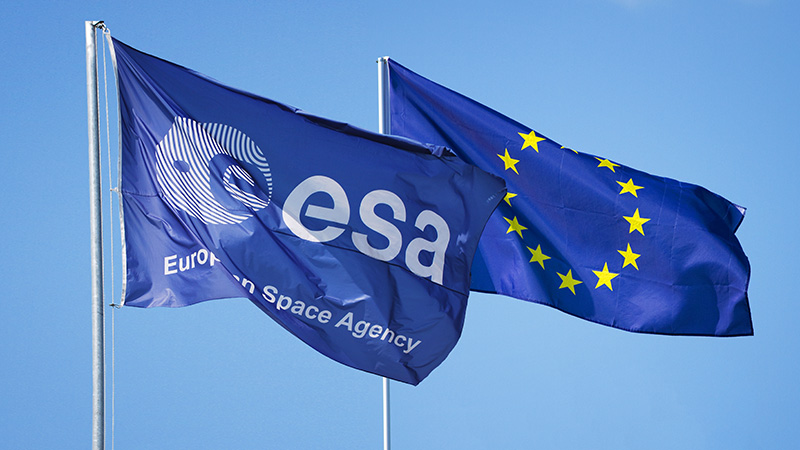
Alex has been passionate about space exploration since her childhood. (Pseudonyms are used, and some genders are obscured throughout this piece, as sources requested anonymity to speak freely.) She considered pursuing astronomy as a career but ended up on a different professional path, one that ultimately led to a job at the European Space Agency (ESA). Alex thought she was set for a career filled with professional fulfillment.
At first, things were good. Alex worked for ESA full time but wasn’t employed directly by the agency; she was hired as a contractor through a manpower company. The staff-versus-contractor divide quickly became obvious. Although colleagues employed as staff performed similar tasks, they were often invited to meetings that Alex felt were relevant to the entire team but from which contractors were excluded.
Over time, Alex soured on the experience of working at ESA. “What I was not prepared for was the prevailing culture of fear, the extremely hierarchical structure, and the dysfunctional nature of management,” she said.
About a year after Alex started at ESA, a new manager was put in charge of the team, and problems quickly grew. Alex felt like contractors were not always given proper briefs for the tasks they were asked to complete. When they sought more information, Alex said that contractors would sometimes be put down and shouted at in meetings. At the same time, the manager obsessed with what the workers were doing, sometimes messaging them more than 10 times a day.
“My line manager consistently undermined my abilities and expertise, making derogatory comments about my work and belittling my contributions,” Alex told Ars. “I witnessed my colleagues being subjected to similar mistreatment, which created a hostile and distressing atmosphere within the team. There were instances where the manager would physically intimidate and threaten employees.”
Her ESA experience was quickly becoming a nightmare—and she wasn’t alone.
Ars Technica spoke with four other people who had also worked with Alex’s manager. Their testimonies align. Another contractor, Nic, said, “I was told by many colleagues to keep my head down, be quiet, and not to upset people.” But just like Alex, Nic said he “experienced verbal aggression on multiple occasions” and “countless times of rude, dismissive, condescending, unprofessional behavior to myself and other contractors.”
These behaviors, Nic said, were driven by the manager and a small clique of supporters. When Nic tried to raise these issues directly with the manager, he was told there wasn’t a problem.
Jo, who also briefly worked with the same team, confirmed that the general atmosphere was one of put-downs and bullying. “People were spoken to in disrespectful ways,” Jo told Ars. “‘Why are you talking, you know nothing about this, your work is embarrassing,’ that type of stuff.” Jo decided to leave after a few months.
“The overall situation at the center was a constant revolving door of contractors,” said Sam, another former team member. “Out of our team of nine people, six either left or were fired within a half-year.”
A dream vs. reality
For many European space enthusiasts, a job at ESA is a dream. But as 18 different sources who spoke to Ars Technica have described their experience, the dream often turns bad as ESA’s corporate environment appears to suffer from bullying, and employees find little in the way of protection.
ESA denies the problem, citing internal anti-harassment policies, but internal documents reviewed by Ars that date back to the late 2000s suggest that, depending on the ESA facility, between 30 and 50 percent of the people working there said they had witnessed harassment. These internal surveys describe the same problems—ostracism, undermining employees, and threats to employment—mentioned by our sources.
“The most common example of harassment behaviors concerned the way in which contractors are treated,” one of the documents says, “and this was an issue identified by both contractors and staff members alike.”
Due to the agency’s special status as an intergovernmental organization, workers who seek legal redress frequently face additional obstacles, as the agency is outside the jurisdiction of any national legal system, and its internal documents are largely inaccessible.
The 18 people who shared their stories with Ars Technica have worked at four of ESA’s six main centers over the past 15 years. Many of these sources don’t know each other and have approached Ars independently. All of the sources requested anonymity, citing fear of retaliation—including never being able to find further work in the space sector. They describe similar patterns of harassment, including verbal insults, ostracism, public denigration, and harsh criticism.
https://arstechnica.com/?p=1981967

